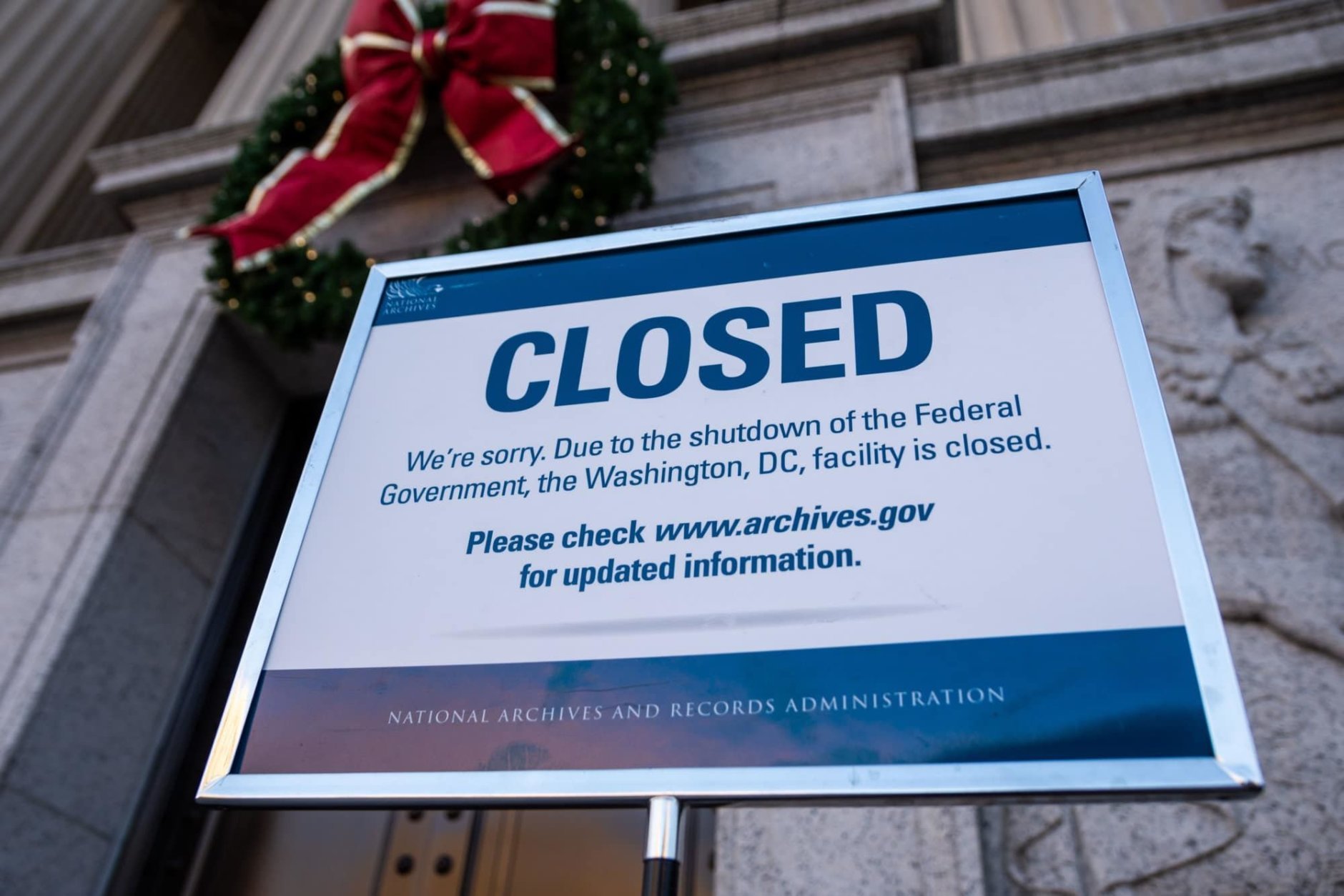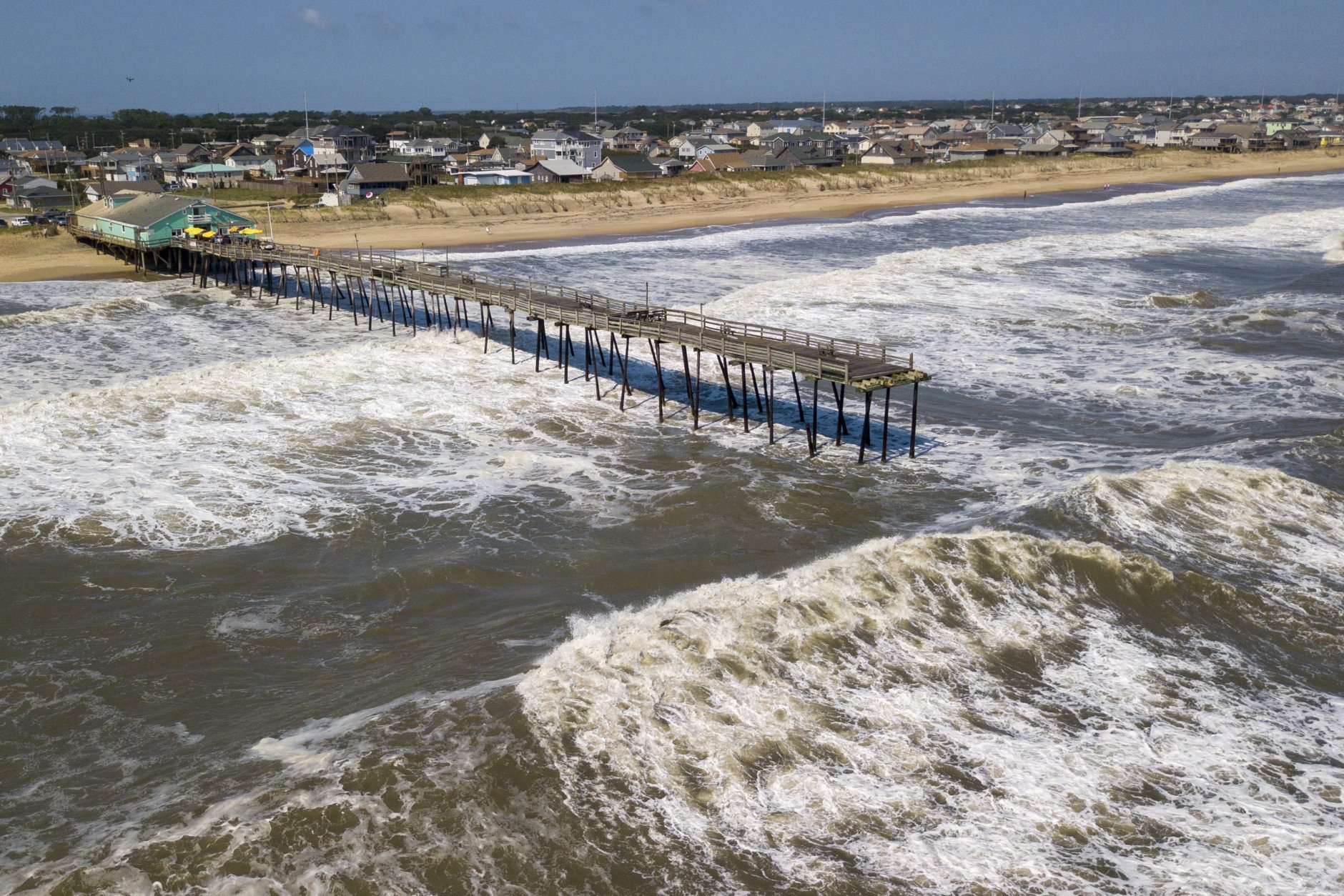From impeachment to shootings to storms, these are some of the biggest stories from around the country in 2019. Some of them had special implications for the D.C. area as well.
The Associated Press contributed to this report.
From impeachment to shootings to storms, these are some of the biggest stories from around the country in 2019. Some of them had special implications for the D.C. area as well.
The Associated Press contributed to this report.
The impeachment of President Donald Trump
For the fourth time in U.S. history, the House of Representatives in December considered articles of impeachment against a president, debating two articles against President Donald Trump after an autumn dominated by testimony and acrimony.
In the end, the House settled on charging Trump with abuse of power and obstruction of Congress. The former charge came as a result of a July 25 phone call between Trump and Ukrainian President Volodymyr Zelenskyy. Trump had already decided against the advice of his advisers to withhold about $400 million in military aid to Ukraine, which is embroiled in fighting against Russia. After Zelenskyy mentioned the money, Trump said, “I would like you to do us a favor though,” and asked Zelenskyy to announce an investigation into former Vice President and 2020 presidential candidate Joe Biden and his son, Hunter, who was on the board of a Ukrainian gas company, and the firing of a Ukrainian prosecutor.
Trump also wanted Zelenskyy to announce a probe into a long-debunked conspiracy theory that Ukraine, not Russia, interfered in the 2016 election.
There was way too much going on to put in one slide, but WTOP’s Jack Pointer has kept abreast of developments and has been writing excellent weekly wrapups. You can read them and watch video of the hearings.
Supreme Court
The Supreme Court’s decisions are always consequential. In 2019, they ruled in June that a question on citizenship could not be added to the 2020 Census, and also that they didn’t have the authority to stop lawmakers from redrawing voting-district lines to give themselves an electoral advantage — a practice known as partisan gerrymandering.
They also upheld in March a Virginia case in which a lower court found that the commonwealth’s district lines had been drawn to pack black voters into districts — “racial gerrymandering,” which the court does have the authority to ban. As The Associated Press pointed out, that leaves judges in the position of reading the motivations behind lawmakers’ actions.
“This decision will make it harder for courts to figure out racial discriminatory motives where they do exist, to the extent they do exist, because line drawers will be able to say that ‘All of our decisions were to gain partisan advantage,’” Rebecca Green, co-director of the Election Law Program, a joint project of the William & Mary Law School and the National Center for State Courts, told The Associated Press. “So I think it will be very hard for plaintiffs to find evidence or to demonstrate the racial predominance that they would need to demonstrate to win a claim of racial gerrymandering.”
Mass shootings
One of the grimmer unique factors of living in the United States continued apace in 2019. As of Dec. 13, the Gun Violence Archive found that there had been 394 mass shootings across the country (defined by the archive as an incident in which four or more people were shot, not including the shooter).
The worst juncture of the year might have been the weekend of Aug. 3-4, when a man, who police said was targeting Mexicans, killed 22 people and wounded 24 at a Walmart in El Paso, Texas, on Saturday; then just 13 hours later and 1,300 miles away, nine people were killed and 17 were hurt in about 30 seconds in a shooting at a bar in Dayton, Ohio, in the predawn hours of Sunday by a man who had a history of violent threats.
They were, respectively, the deadliest and third-deadliest shootings in the nation. The shooting by a city employee in Virginia Beach, Virginia, was the second-deadliest, with 12 killed and four wounded on May 31.
The Fourth of July in D.C.
It was a D.C. story, but also a national one: President Donald Trump would be the headliner at his own commemoration of the Fourth of July — a holiday during which presidents generally have kept a low profile. Not only that, but Trump, long a fan of the kind of hardware-laden military parades held in other countries, including France on Bastille Day, said that a Blue Angels flyover and Army tanks were going to be part of the celebration on the National Mall, down the road from the usual “A Capitol Fourth” event.
The D.C. government wasn’t happy about that, given the damage that tanks can do to roads. (The Department of Defense shared that concern.) D.C. officials were also still smarting over $7 million they said the District was still owed from the 2017 inauguration.
In the end, the tanks were limited to being on display and parked on flatbeds, rather than rolling down the street. Trump called the history of the U.S. “the greatest political journey in human history” on the steps of the Lincoln Memorial, and an afternoon rainstorm drenched attendees and protesters alike.
 5/10
5/10
The federal government shutdown
Speaking of national stories that also hit locally: Much of the federal government shut down on Dec. 22, 2018, leaving about 800,000 federal workers either temporarily out of work or working without pay until funding for the operations of the government was restored Jan. 25, 2019.
The standoff was over President Donald Trump’s demand for $5.7 billion in federal funding for a border wall with Mexico. Trump had long promised such a wall in his campaign, though he had always said Mexico, not American taxpayers, would pay for it.
Most federal workers, including tens of thousands in the D.C. area, missed two paychecks as a result of the 35-day shutdown, the longest in American history.
It also caused a delay in the State of the Union address, as House Speaker Nancy Pelosi, who regained the speakership after the 2018 midterms, changed the date of her invitation to Trump.
The bill to reopen the government contained no new money for a wall; the funding only lasted until Feb. 15. At that point, Trump made good on a long-standing threat and declared the situation on the southern border a national emergency, giving himself the power to divert money that Congress had approved for various purposes and use it on a border wall instead.
Since then, the issue has been tied up in courts.
The death of Abu Bakr al-Baghdadi
The Islamic State leader detonated a suicide vest as U.S. special forces closed in on him in Syria in October. He used several children as human shields with him; two were killed as well. The mission was the result of a combination of years of careful surveillance with a blur of planning when a tip as to his location came in.
The moment-by-moment reconstruction of the raid is compelling; the effect on the IS group is not so clear. Experts told WTOP National Security Correspondent J.J. Green that al-Baghdadi was no longer a major operational leader, but still an important symbolic figure. One argued, however, that members of the group had sworn loyalty oaths to al-Baghdadi personally; with his death, they’re free to leave.
The college admissions cheating scandal
Starting in March, a passel of wealthy parents, coaches and test administrators were charged in a scandal that showed how easily the process of applying to elite colleges and universities can be distorted by money.
Some 50 people were indicted in March, with more coming later, in a scandal that involved William Singer, the head of the consulting service The Edge College and Career Network. Parents paid Singer a total of $25 million between 2012 and 2018, disguising the payments as charitable contributions to Singer’s nonprofit organization.
In return, Singer would coordinate a massive scheme that included cheating on the SAT and ACT; unearned extra time and retakes of the tests due to falsified learning disabilities; and false claims that students played certain sports they never really participated in.
That last aspect roped in many coaches, some of whom had several spots in each freshman class they had the power to hand out. One of them was former Georgetown tennis coach Gordon Ernst.
Parents made payments ranging from $100,000 to $6.5 million, though most ranged from $250,000 to $400,000. Because they were disguised as charitable contributions, parents were able to deduct them from their taxes.
In the transcript of a phone call released by prosecutors, Singer appeared to have it down to a science: “It’s $75,000 to get any test scores you would like to get on the SAT or ACT.”
Some of the best-known people charged in the scandal included fashion designer Mossimo Gianulli; his wife, the actress Lori Loughlin; and the actress Felicity Huffman.
Huffman spent two weeks in prison in October; more cases are pending.
The arrest and death of Jeffrey Epstein
The hedge fund manager was arrested in July on charges of sex trafficking and conspiracy; prosecutors said many pictures and videos of nude and seminude young women and girls were found at his $77 million Manhattan mansion. He had long been accused of paying underage girls for massages and sexually abusing them.
The arrests came shortly after reporting by the Miami Herald detailed how Epstein pleaded guilty in a 2008 deal to state charges in Florida of solicitation of prostitution involving a minor, serving 13 months on work release, paying victims and registering as a sex offender, but avoiding federal prosecution and a possible life sentence.
Epstein owned a private island in the Caribbean, homes in Paris and New York City, a New Mexico ranch, and a fleet of luxury cars. His friends had once included Britain’s Prince Andrew, former President Bill Clinton and President Donald Trump.
Epstein was facing 45 years in prison and had been refused bail.
Then, in August, Epstein was found dead in his cell in Manhattan. His death has been ruled a suicide; alternative theories are still circulating.
But, in November, an indictment based on security-camera images said that the two guards responsible for monitoring him were sleeping and shopping online when they were supposed to be watching him, and that no one entered the area of Epstein’s cell on the night he died.
Meanwhile, lawsuits against his estate continue, and his accusers are frustrated, saying his death means he “will never face the consequences.”
The presidential campaign
While Democratic contenders to unseat President Donald Trump began declaring their candidacies in 2018, this was the year the race really got going.
Former Vice President Joe Biden has led in polling since announcing his candidacy in April, followed most generally by Sen. Bernie Sanders.
The field, which at one point numbered more than 25, is down (relatively) to 15 candidates. Some high-profile dropouts, such as Sens. Kamala Harris and Kirsten Gillibrand, stand in stark contrast to the continuing campaigns of wealthy candidates Tom Steyer, Michael Bloomberg and Andrew Yang.
On the Republican side, former Massachusetts Gov. Bill Weld and former Illinois Rep. Joe Walsh have announced candidacies, but haven’t gotten much traction. Some states have, in fact, canceled their GOP primaries, throwing their support behind Trump and figuring a primary isn’t worth the expense.
 10/10
10/10
Storms
Probably the storm of the year was Hurricane Dorian, which battered the Bahamas in September, killing hundreds of people, and causing flooding, tornadoes and millions of power outages in the southeastern U.S.
Some of its effects brushed southern Maryland and the Eastern Shore, and it survived as a tropical storm all the way up into Canada.
A storm system in March in southeastern Alabama killed 23 people and caused what one sheriff called “incredible” devastation.